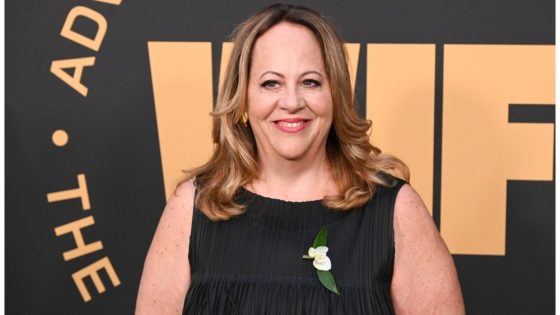Producer Ina Fichman, Oscar nominated for “Fire of Love,” was at the 25th edition of Hot Docs Forum on Tuesday to pitch her latest project “Ba’s Book.” Directed by Canadian filmmaker Ashley Da-Le Duong, the hybrid docu focuses on Duong’s father and his experiences living through both the Vietnam War and the Iranian Revolution.
“Let me take you somewhere for a moment,” Duong told the Forum audience and participating distributors including Arte, A24 and Al Jazeera. “It’s 1968 and a young man stands in the middle of a rice paddy field and looks up and sees a helicopter. Not unusual because his house is right beside an American army base, but this time the helicopter overhead shoots at him and he pretends to be dead. He vows to leave his village forever. Eventually he does escape. He wins a scholarship to Iran. But his escaping terror is short lived because the Iranian Revolution breaks out and he finds himself stateless and homeless. This young man is my dad, but he never told me any of these stories until recently. My film explores the legacy of forced displacement and civil war on the fabrics of the community and the family.”
Duong told the crowd that the docu, which is in the early stages of development, will use her father’s upcoming memoir as a way into his response to the Vietnam War and the Iranian Revolution. The director plans to use recreations to help bring her father’s emotional reactions to each of the seismic events to the forefront.
Representatives from the Hot Docs Incubator and the Catapult Film Fund told Duong to apply for their respective grants. Arte’s Rasha also expressed interest in the film, telling Duong that the project reminded her of Asmae El Moudir’s 2023 docu “The Mother of All Lies.”
“7 Beats Per Minute”
Courtesy of Hot Docs
In addition to “Ba’s Book,” Fichman, a Canadian-based producer, has three docus – “Adrianne and the Castle,” a love story told via fantastical musical re-enactments, “7 Beats Per Minute,” about freediving champion Jessea Lu, and “The Bones,” an examination of the high-stakes world of dinosaur bone trading – screening at Hot Docs this year.
Following “Ba’s Book” successful pitch session, Fichman spoke with Variety about the docu distribution landscape, the future of Hot Docs and how she helped the International Documentary Association (IDA) rebuild.
How did you and Ashley Da-Le Duong connect?
Ashley lives in Montreal, so I know her. She showed me her trailer and I said, “Wow. This sounds interesting.” So, over the course of probably a year, I helped her with development, the story and I hired someone to cut the sizzle. Then we re-worked the sizzle. It was a very collaborative and slow process. What excites me about this film is that I’m a big fan of “Mother of All Lies” and “Four Daughters.” I thought that they really broke through the form of what we consider documentary in a very accessible way. People appreciate it and nobody questioned the form and I think with Ashley’s film it will be the same thing.”
At the Pitch you said that you have been coming to the Hot Docs Forum to pitch projects from its inception 25 years ago. What other projects have you pitched at the Forum?
Many. “Fire of Love,” “Adrianne and the Castle” and “The Bones” are some recent ones.
“Adrianne and the Castle,” “7 Beats Per Minute” and “The Bones” are all seeking distribution deals, correct?
Dogwoof is involved with “The Bones.” To make that film we sold to Crave Originals in Canada and ARTE RBB. “Adrianne and the Castle” and “7 Beats Per Minute” are both still looking for distribution deals.
What is your take on the current documentary distribution landscape? Are you even considering the streamers or are you just focusing on territory by territory distribution?
I’ve been making films for several years and territory by territory is how we sold. I made a film called “Laila at the Bridge” (2018) and we pre-sold it in X number of territories and for many years that’s what happened. You could raise two or three hundred thousand euros out of just one territory. So, for those of us who have a lot of experience working that way, we are going back to that model. If I want to continue to be prolific and make films this is the model I need to follow right now.

“The Bones”
Courtesy of Intuitive Pictures, Berlin Producers
In 2022 Netflix acquired “The Deepest Breath,” about the world of high-risk freediving. That was followed by a big award season push. Do you think that that hurt the distribution chances of “7 Beats Per Minute”?
Netflix isn’t going to buy the film, that’s for sure, but people love it. It plays beautiful in a cinema. Unfortunately, very few theatrical distributors are taking on docs because the market has been really bad for them, so I’m looking at self-distribution for this film. I think the film will do really well in China. In fact, a Chinese distributor is coming to see it and if it does well in China it could be crazy.
So you are looking at a TVOD or AVOD release for that film?
Yes. Also, there are some really wonderful people in the United State now that have really deep relationships with cinemas and they are working for monthly fees with impact producers and publicists to develop campaigns for films and get them out there. “To Kill a Tiger” is a great example. That’s the future for independent films.
You are on the board of directors of Hot Docs, which its own organizers warn might be the last. What’s your take?
I’ve been coming to this festival since its early days when they were showing films in hotel conference rooms. The organizers realized quickly that the Toronto community wanted to see these documentaries. So, I think that Hot Docs is a festival that is very important to Toronto. Every single screening is packed to this day no matter what the topic and the international filmmaking community loves being part of the fest. For me, it’s going back to our roots. It’s really about understanding what Hot Doc is. We need to look at the future of the festival and that’s what is going to happen.
Does that mean getting smaller in terms of the fest’s lineup going forward?
It’s hard to say. Maybe. Is it less films? Maybe. Is it a smaller Forum? Maybe.
The Canadian government declined to provide funding Hot Doc in the federal budget unveiled April 16 yet its budget added $88 million in funding for the screen sector, including $17 million over three years for the larger Toronto International Film Festival. Are you planning on reapplying for funds from the government?
It’s about having a real plan on vision for the festival. I don’t think it’s the government saying absolutely not. I think it’s a question of the government probably wanting to see a plan. TIFF clearly worked on a plan. It’s government money. They clearly aren’t going to just write you a check. So, we need a really clear, forward thinking plan for Hot Docs.
You are also on the board of the IDA, which is an organization in mending after it shed more than 75% of its staff after Rick Pérez was named executive director in 2021. He has since left the organization. Now Hot Docs is in a very similar situation. On March 25, Hot Docs artistic director Hussain Currimbhoy “left for personal reasons,” which led to 10 of the fest’s programmers abruptly exited their posts. As a Hot Docs board member what advice are you giving?
The IDA went through hell. Our IDA board was hands on for about a year making sure that the organization was on track, and I think that we took our time and hire the right people.
So, will you use similar tactics at Hot Docs in terms of hiring the right people?
The issues with Hot Docs are not new. It’s really about making sure that the vision of an organization or a festival is really clear and sticking to a plan.
Source Agencies



